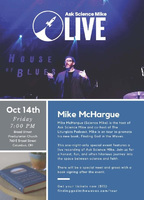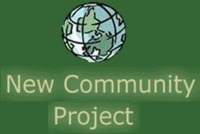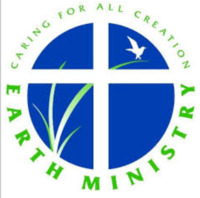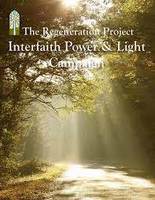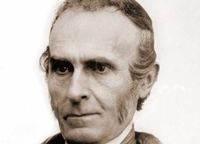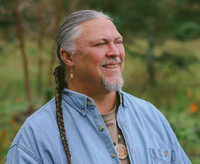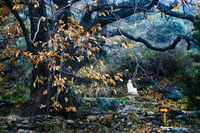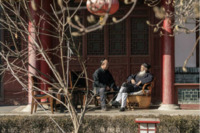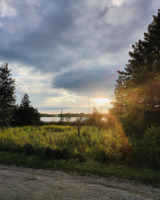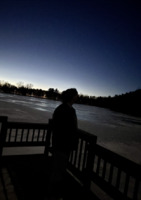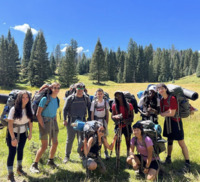Search
106 items
-
Science Mike to speak tonight at Broad Street Presbyterian
Event Announcement:
Columbus Broad Street Presbyterian Church and the Presbytery of Scioto Valley Commission for Nurture and Outreach will host Science Mike on Friday, October 14.
Mike McHargue is the host of two podcasts, Ask Science Mike and The Liturgists. Mike, an amazing and popular communicator, will be recording an episode of Ask Science Mike during his evening presentation at Broad Street PC.
Tickets are $15 and are available from: www.findinggodinthewaves.com/tour
-
Profile: Rev. Pat Watkins
The Reverend Pat Watkins is a missionary with the General Board of Global Ministries of The United Methodist Church. He is guiding a new, globally-focused United Methodist Ministry with God’s Renewed Creation, based at Global Ministries and also closely related to the Council of Bishops. While faith has traditionally looked at relationship with God and relationships with other people, he began to see a relationship between faith and the created order. Please click the link below to read more about Reverend Watkins: -
New Community Project Creative Arts Page
The New Community Project created a creative arts page to offer resources for justice, peace, and care for creation. In the caring for creation section, there are skits, checklists, and worship resources all centered around this topic. -
Earth Ministry Songs and Hymns
Earth Ministry has been a leader in engaging faith communities in environmental stewardship and advocacy. They have created a list of songs and hymns from various artist that are related to God's gift of creation. The list was compiled as a resource for creation-honoring worship services. -
The Regeneration Project
The Regeneration Project was created as the parent project of Interfaith Power&Light. It is meant to help deepen the connection between ecology and faith and to help people of faith recognize and fulfill their responsibility for the stewardship of creation. They do so through educational programs for clergy and congregations -
Skits & Readings - Creative Arts and Educational Resources
Worship resources on the themes of justice, peace, and care for creation curated by the New Community Project. This is a list of activities to engage and educate students on christian and sustainability teachings. -
A Buddhist Perspective on the Eco-Crisis from David Loy
This short video consists of David Loy discussing the Buddhist perspective on the Eco-crisis. He begins by describing anata, the belief that all things are constantly changing and there can be no such thing as a permanent self. He then talks about dukkha, which is the idea that human experience is short-lived and suffering results from excessive desire. These ideas come together to describe the Buddhist idea that there is no “self.” Loy maintains that, “our sense of self is usually haunted by a sense of lack.” This sense of lack and false sense of “self,” create issues for people that can be related to consumerism, the Eco-crisis, and more. -
The Worship of Nature
The Worship of Nature is a poem by John Greenleaf Whittier published in 1867. The poem describes nature and forests as a holy place and Whittier makes a comparison to it being an altar. He describes the winds as hymns of praise and the blue sky as the temples arch. -
Environmental Theology in Sikhism
The Sikh scripture declares that the purpose of human beings is to achieve a blissful state and be in harmony with the earth and all creation. They believe that humans have drifted away from that ideal and that this crisis is in need of an immediate and urgent solution. The crisis requires going back to the basic question of the purpose of human beings in this universe and an understanding of ourselves and the Divine creation. -
Environmental Statement – Mennonite Church
Like many other religions, the Mennonite Church has released a statement about the need to take care of our environment. They are encouraging this attitude of caring for our planet among their members by using biblical text. It focuses on helping people choose simpler lifestyles, and seeking justice for the environment. -
Sustainability Photo Contest
This RESTORExchange photo contest is being brought back from the pre-COVID era, and with an added collaboration with the Sustainability Institute. It's based around the question "What does sustainability look like?" This can include sustainability in environmental justice, technology, energy, lifestyle and wellbeing, society and culture, economy and politics, and any other context where you see sustainability in action. We want to see your perspectives and show all the different places that sustainability is practiced! Winning photos will be decided by a panel of judges (yet to be determined), and the top four photos will win a prize! First place will receive $400, second place will receive $300, third place will receive $200, and an honorable mention will receive $100. Submissions will be accepted through March 15, 2023. -
Marianist Environmental Education Center
"The Marianist Environmental Education Center (MEEC) is an environmental education community in the Catholic tradition. In Mary's hope-filled spirit, we preserve and act in communion with the land and educate other communities in sustainability through ecology-based simple living, social justice and spirituality." -
Advent Simplicity Challenge
"This Advent, commit to simplicity. In a season that can mistakenly be focused on gifts and consumption, explore ways to live simply as we hopefully prepare for the coming of Jesus and the restoration of the earth. This year, we’ll be mixing in new daily challenges, as well as accompanying PDFs for folks who prefer not to use the interactive calendar." -
Decolonizing Thanksgiving
"As we head into the Thanksgiving holiday weekend in the United States, it’s great to think about all the things we can be grateful for. It is good to have a time to pause and reflect, to participate in the seasonality of gratitude for the year’s bountiful harvest, and to gather with family and friends. (We’ll ignore the über-consumerism of the day following Thanksgiving…)
Many of us probably know by now, however, that the story many of us learned in school about the first Thanksgiving is rather inaccurate at best, and racist and paternalistic in many ways, with a focus on the Manifest Destiny idea of the divine mandate for Europeans to conquer the “New World” in the name of Christ and country.
A few questions come to mind (at least my mind), for those of us with European-American roots, such as:
Should we even celebrate Thanksgiving, since it’s so tainted with colonialism?
What might it look like to “decolonize” our own understandings and our culture?
How can we do this work in a way that encourages our own folks to partner, rather than making them (our White brethren) feel further ostracized, but while also speaking real truth?
What can we do this Thanksgiving to begin to reconcile relationships damaged in the colonial era, both human to human and human to this land?" -
MLK Day 2024
"ServeOhio Funds 19 Statewide Service Projects Taking Place in celebration of MLK Day
These grants support more than 1,300 volunteers engaging in local community service projects across fifteen Ohio cities
ServeOhio, the Governor-appointed commission on service and volunteerism, announces grant awards to support 19 local Martin Luther King Jr. Day of Service projects throughout January totaling more than $25,000. Much like Dr. King’s legacy, these grants will help nonprofits across the state improve their communities through service and volunteer activities. The grants will fund service projects in fifteen Ohio cities led by more than 1,300 volunteers.
Each project commits to bringing volunteers together to create or improve community assets or infrastructure and supports local community engagement and impact. Additionally, every project includes an education component based on Dr. King’s message of peace, unity, and service to create long-term, sustainable change.
ServeOhio awards these grants with support from the American Electric Power Foundation. Each grant totals between $250 - $1,500." -
Evolution of the Collective Unconscious
"The collective unconscious is made up of experiential knowledge, symbols, and imagery that humans are naturally born with (no tabula rasa) and are rooted in ancestral experience and shared by all persons in all cultures. After millennia of evolution, the current collective unconscious of humanity would seem to include human exceptionalism, patriarchal hegemony, short-terminism, delusions of grandeur, illusions of unending growth, and the idolatry of technology. As the planet becomes overloaded with industrial civilization, our collective mindset seems to be unwilling to think long-term and face the realities of ecological overshoot. It remains to be seen whether our collective mindset can evolve to voluntarily refocus human agency toward contraction of the human enterprise, simplification of lifestyles, and peaceful resolution of conflicts before it is too late to prevent a chaotic collapse of industrial civilization." -
The World on Fire: A Buddhist Response to the Environmental Crisis
The World on Fire: A Buddhist Response to the Environmental Crisis by Katie Javanaud explores how Buddhist teachings can inspire environmental activism. Javanaud examines key Buddhist sermons, such as the "Fire Sermon," which metaphorically portrays the world consumed by the flames of greed, hatred, and delusion, resonating deeply with contemporary environmental challenges.
Greed is identified as a driving force behind the environmental crisis, fueling overconsumption and disregard for ecological balance. Javanaud illustrates how Buddhist principles offer insights to counteract societal norms of materialism and promote mindful living.
The article addresses common objections to applying Buddhist teachings to environmentalism, providing valuable perspectives for those interested in integrating spirituality with environmental activism. This article serves as a concise introduction to Buddhist environmentalism, offering clarity on the compatibility of Buddhist values with ecological stewardship. -
Taoist monks find new role as environmentalists
This article details the efforts of Taoist leaders in China to incorporate sustainability in Taoist temples and promote a culture of environmentalism. Since 2006, the Daoist Ecological Protection Network has gained the support of 120 temples who have converted to the use of solar panels and biofuels. Taoist monks noticed many people to be ignorant towards their environmental impact, living a life of hyper-materialism. Monks wanted to help educate society about the actions that can be taken to ameliorate environmental issues both at the temples and in daily life. This pursuit is driven by a fundamental belief in Taoism to live in harmony with nature, a value that could have large impacts on society if adopted. -
Capturing the Essence of Sustainability at Halifax Public Garden
"Capturing the essence of sustainability at Halifax Public Garden. This picturesque view of the tranquil lake connects the myriad benefits of green spaces, from promoting social connections and mental well-being to enhancing physical health and fostering equity within our communities to improving water and air quality. Serving as a reminder of the crucial role green spaces play in fostering sustainable communities. By preserving and nurturing our natural environments, we not only enhance our quality of life but also safeguard the health of our planet for future generations. Let's continue to embrace and support sustainability efforts for a greener, more resilient world." Taken by Aklema Iryn. Submitted to the RESTORExchange Sustainability Photo Contest. -
Low Consumption Activities
"Low consumption activities are fun, walking in Schmeekle Nature Reserve in late January during golden hour". Taken by Elliot Fey. Submitted to the RESTORExchange Sustainability Photo Contest. -
Nature is Bright
"Nature is bright". Taken by Arun Thamarakshan Nair. Submitted to the RESTORExchange Sustainability Photo Contest. -
Walks in February
"Going for walks in February at Schmeekle Reserve is sustainability." Taken by Elliot Fey. Submitted to the RESTORExchange Sustainability Photo Contest. -
New Mexico's Wilderness
"Standing in New Mexico's wilderness, geared up for adventure, I feel the perfect blend of excitement and responsibility. This sustainable journey allows me to appreciate nature's beauty while prioritizing its preservation. Each step honors ecosystems, guided by Leave No Trace principles. Through hiking, I connect deeply with the land and advocate for environmental stewardship, ensuring these wild spaces endure for future generations. It's not just about exploration; it's about respecting and protecting our planet." Taken by Shristi Tamang. Submitted to the RESTORExchange Sustainability Photo Contest. -
A Jewish Response to Environmental Stewardship: LEEDing the Way
The article highlights Temple Israel of Minneapolis's achievement of LEED Gold Certification, reflecting their commitment to sustainability through a multi-year renovation project. This accomplishment aligns with their Jewish values, particularly the principle of Pikuach Nefesh, which emphasizes protecting life and the environment. The synagogue's efforts extend beyond their building to include community-wide initiatives such as climate action resource fairs and partnerships with environmental organizations. Their ongoing commitment to sustainability is showcased through continuous improvements and active participation in broader climate justice movements. -
Profile: Paula Penn-Nabrit (Founder of The Charles Madison Nabrit Memorial Garden)
Paula Penn-Nabrit's autobiography (from her website):
"Spiritually, I’ve been blessed as a practicing Christian, a 4th generation member of The Church of Christ of the Apostolic Faith, the same apostolic/pentecostal church my great-grandparents joined 100+ years ago.
Physically, I’m blessed as an 8th generation, native-born American of the African diaspora. I’m blessed to be a widow who was happily married for 36 years, 8 months and 22 days to an incredible man, Charles “CMadison” Nabrit. And CMadison and I were incredibly blessed by the opportunity to parent and then homeschool three fabulous sons, twins Charles and Damon who arrived in 1980, and Evan who arrived in 1982.
Academically, I’ve been blessed by my parents’ willingness to help pay for my education first at Columbus School for Girls and then Wellesley College. And I was further blessed by their willingness to help CMadison fund my quest for that terminal degree at the Moritz College of Law at The Ohio State University.
Professionally, I continue to be blessed by decades of successful operation with my consulting firm, PN&A, Inc. www.nabrit.com/pna. I started PN&A, Inc. in 1986. Next in 1990 I convinced CMadison we could stay married and work together, then in 2007 we welcomed first Damon our tech guru and later Charles as researcher and presenter into the business and finally in 2009 Evan, our youngest and a freakishly brilliant artist, agreed to manage our freelance graphics and client videos. I’m blessed to see PN&A, Inc., a black, women-owned, family-run, information-based business moving into the 2nd generation.
Intellectually, I’ve been blessed to write several books, including Morning by Morning: How We Home-Schooled Our African-American Sons to the Ivy League @2003, Random House and most recently The Power of a Virtuous Woman @2012.
Personally, I’m blessed by my extended family. In 1980 with the birth of their first grandchildren my parents began a tradition of gathering their children, their children’s spouses and their grandchildren for dinner each Sunday after church. Attendance at Grandmother and GrandDad’s Sunday dinners has grown to include nine grandchildren. We miss CMadison and Daddy, but we continue to be blessed by their memory and their legacy."

